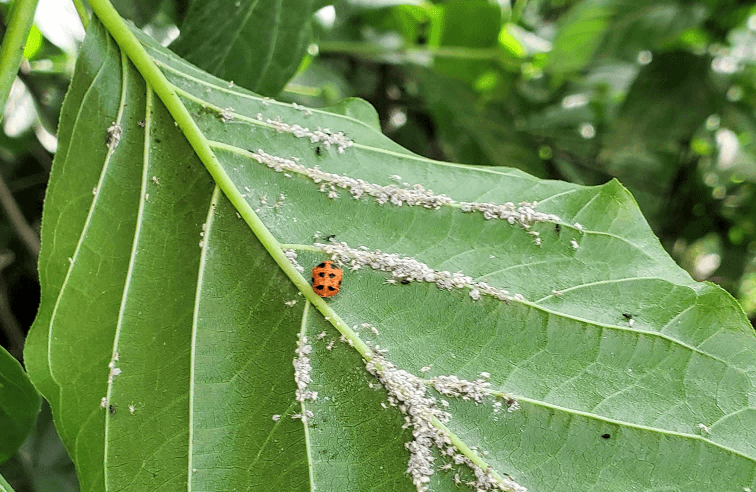This site uses cookies – Learn more.
Addressing Plant Stressors
Addressing Plant Stressors

In an earlier post, we introduced Integrated Pest Management (IPM) as a comprehensive approach to effectively addressing pest issues, in a conscious way, to minimize harm. IPM helps manage plant health in a way that can prevent, eliminate, reduce, or contain an infestation without resorting to pesticide use.
Addressing plant stressors is another important practice for supporting the health and development of plants. Stress can be caused by biotic or abiotic (i.e. non-living) factors. These factors include drought, wind, temperature, humidity, soil conditions, fungi (which are responsible for most plant diseases), bacteria, viruses, and more.
Stress can also be the result of exposure to environmental conditions outside of those ideal for a plant’s optimal growth. For example, Colorado spruce (Picea pungens) is native to the Rocky Mountains, an area with high altitudes and an arid climate. Subjecting it to New York’s climate, and that of other regions well beyond its native range, can lead to a shorter lifespan.
It is important to strive to take preventative action rather than curative. Once one issue arises, others are likely to follow when a plant is in distress. Pests like aphids and whiteflies secrete a clear, sticky substance called honeydew on leaves and tree limbs. Sooty mold is a fungus that feeds off of honeydew, growing on top of it. If enough accumulates, it can block out sunlight. This interferes with photosynthesis and, ultimately, the food the plant is able to produce.
Simple considerations to be made to prevent or alleviate stress include appropriate siting, mulch applications, and installation of drip irrigation. Other considerations include appropriate plant spacing, restoring native plant populations, selecting resistant cultivars, introducing beneficial insects, regularly sanitizing tools and containers, and the proper disposal of diseased leaf litter and other plant debris.



